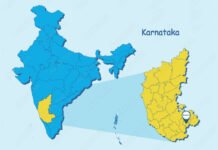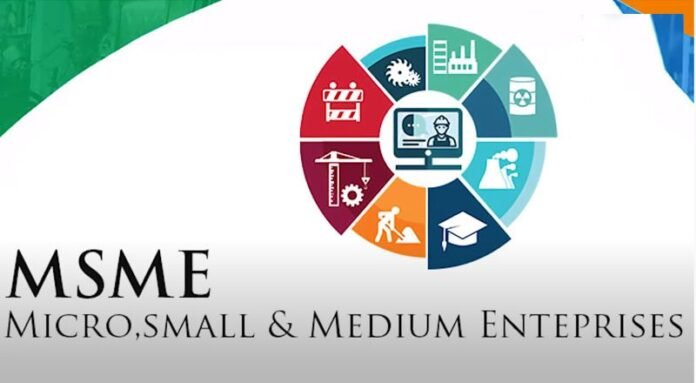A quiet revolution is underway in the Northeast. In July 2025, a significant milestone was marked as Nagaland University was chosen to host one of the region’s new business incubation centres under a Central initiative to strengthen entrepreneurship.
Incubation Drive Marks a New Beginning
The centre is set to nurture 44 startups from across the eight states, providing mentorship, training, and seed funding. The move reflects a deeper shift: the Micro, Small and Medium Enterprises (MSME) sector in Northeast India is stepping into the national spotlight.
For a region long perceived as peripheral in economic terms, the MSME sector offers a compelling path to inclusive, grassroots-led growth. With rising investments, targeted policy support, and a growing ecosystem of young entrepreneurs, the Northeast’s MSMEs are now being seen as the real engines of local prosperity and self-reliance.
From Guwahati to Imphal: Signs of Enterprise Everywhere
During World MSME Day celebrations in June 2025, Guwahati hosted a showcase of small business success stories and policy initiatives aimed at strengthening the sector. Entrepreneurs, many of them women and first-generation business owners, displayed their products—from organic cosmetics and traditional textiles to agri-processing innovations. Officials introduced digital finance tools, such as Trade Receivables Discounting Systems (TReDS), to boost liquidity and facilitate transparent payments.
Around the same time, major investors announced projects worth over one and a half lakh crore rupees for the Northeast during the Rising Northeast Investors Summit. These investments, though focused on infrastructure, energy, and digital services, are expected to unlock massive supply chain opportunities for local micro and small enterprises. From bamboo furniture suppliers to clean-tech component manufacturers, MSMEs are poised to ride the wave.
Manipur Leads in Numbers, Assam in Startups
Among the northeastern states, Manipur has taken the lead in MSME growth. Between 2015 and 2019, the state registered more than 12,000 MSMEs—remarkable for its size. What’s more striking is that half of these businesses are women-led, indicating a dramatic social transformation powered by enterprise.
Assam, meanwhile, has emerged as the region’s startup capital. By the end of 2024, the state had over 1,400 officially recognized startups, accounting for more than 70 percent of all such ventures in the Northeast. From eco-friendly packaging to tech-based delivery platforms, the variety of ideas reflects both the dynamism and urgency of economic innovation in the state.
The Credit Bottleneck: Growth Held Back by Finance
Despite visible momentum, the MSME sector in the Northeast continues to struggle with a longstanding problem—access to credit. Between 2018 and 2023, the total amount of loans outstanding to MSMEs in the region grew by over 50 percent. However, the credit-deposit ratio, which shows how much banks lend compared to deposits collected, remains stubbornly low at just over 45 percent. This figure is far below the national average of more than 75 percent.
Even flagship loan schemes like the Pradhan Mantri Mudra Yojana have seen limited traction in the Northeast. Since its inception, the region has accounted for just over one crore sanctioned loans—only a small fraction of the national total. This gap in credit access has led many small businesses to continue relying on informal lenders, often at high interest rates that strain long-term viability.
NEDFi and Guarantee Schemes Offer a Lifeline
The North Eastern Development Finance Corporation Ltd (NEDFi) has emerged as a key institutional pillar in addressing this finance gap. In 2023 alone, it sanctioned more than 750 crore rupees for over 5,000 projects. Of this, nearly 550 crore was disbursed, supporting sectors like healthcare, agri-processing, and textiles. Notably, NEDFi’s micro-finance efforts touched nearly nine lakh individuals, with women accounting for 90 percent of the beneficiaries.
Complementing this is the Credit Guarantee Fund Trust for Micro and Small Enterprises (CGTMSE), which now offers up to 85 percent guarantee coverage for micro-enterprise loans up to five lakh rupees. This shift has encouraged more first-time borrowers and women entrepreneurs to seek formal credit.
Infrastructure and Logistics Still a Hurdle
While finance is a major hurdle, logistics is an equally serious concern. The region’s hilly terrain, poor connectivity, and underdeveloped transportation networks significantly increase the cost of raw materials and finished goods. Small business owners in states like Arunachal Pradesh and Mizoram often pay twice as much for shipping as their counterparts in the plains.
Even in relatively well-connected states like Assam and Tripura, poor rural road networks and inconsistent power supply create a hostile environment for small-scale manufacturers. This makes it harder for enterprises to scale up or diversify, locking them into low-margin production cycles.
Training and Market Linkages Need Strengthening
Many MSMEs in the region suffer from inadequate technical support and lack of market access. Government-run training programmes exist, but their penetration remains shallow, especially in remote districts. As a result, even businesses with great products struggle with packaging, pricing, and branding when competing outside their home states.
However, initiatives launched over the past two years are beginning to close this gap. A Central government scheme announced in 2023 aims to train over 2.5 lakh youth in industry-relevant skills by 2026, with a special focus on the Northeast. These include apprenticeships, certification in handicrafts and IT services, and entrepreneurship development.
Women Entrepreneurs Show the Way
The story of MSMEs in the Northeast is also the story of women rewriting their roles in society. In Manipur, over half of all registered MSMEs are led by women. In Assam and Nagaland too, women are setting up food processing units, handloom enterprises, and online stores that deliver traditional products across the country.
One such example is that of a group of women from Dhemaji who run a successful organic turmeric processing unit. With support from NEDFi and local NGOs, they’ve secured packaging contracts from wellness brands and are now mentoring other women’s groups in nearby districts.
These stories point to a quiet transformation: when finance, training, and market support come together, even the most marginalized communities can take charge of their futures.
The Road Ahead: Five Priorities for Real Change
-
Bridge the Credit Gap: Banks must be incentivized to improve the credit-deposit ratio and extend risk-free loans under guarantee schemes, especially to first-generation entrepreneurs.
-
Strengthen Training Ecosystems: Expand skill development programmes in partnership with local universities, industry bodies, and NGOs, tailored to regional industries.
-
Promote Cluster-Based Growth: Identify sectoral clusters such as bamboo, food processing, and handicrafts, and provide common facilities, branding assistance, and logistics support.
-
Digital Inclusion: Ensure that MSMEs have access to e-commerce platforms, UPI-based payments, and digital accounting tools, along with training on how to use them.
-
Follow Through on Investment Commitments: Large corporates must be encouraged to partner with local MSMEs for procurement, joint ventures, and knowledge transfer in areas like clean energy, agro-tech, and tourism.
Conclusion: The Silent Engine That Could
The MSME sector in Northeast India is still finding its feet, but its potential is undeniable. With the right support, small enterprises can become anchors of job creation, innovation, and economic self-sufficiency across the region.
This is not merely about business; it is about building an economy that works for its people—from the hills of Nagaland to the plains of Barak Valley. It is about ensuring that enterprise is not the privilege of the few, but the power of the many.

























